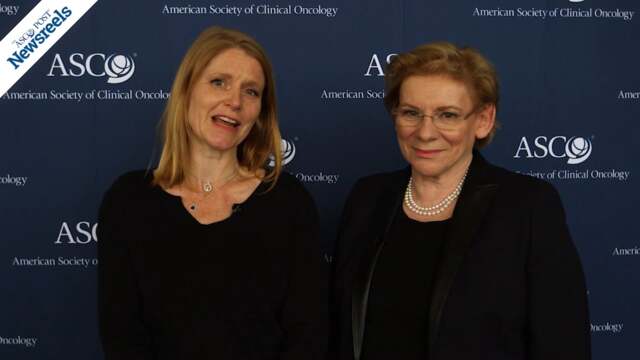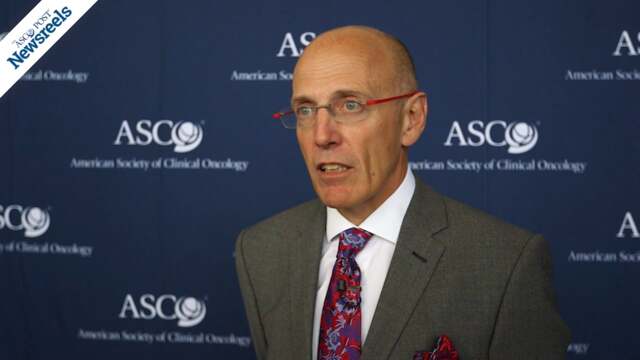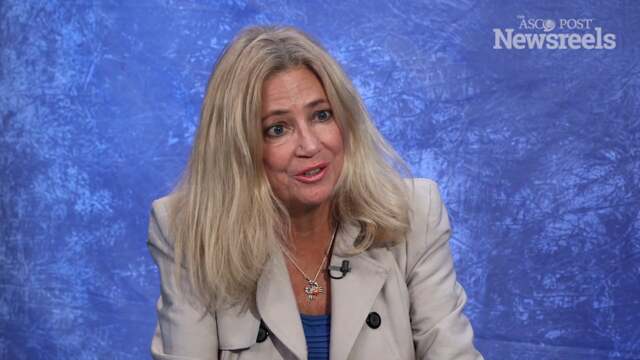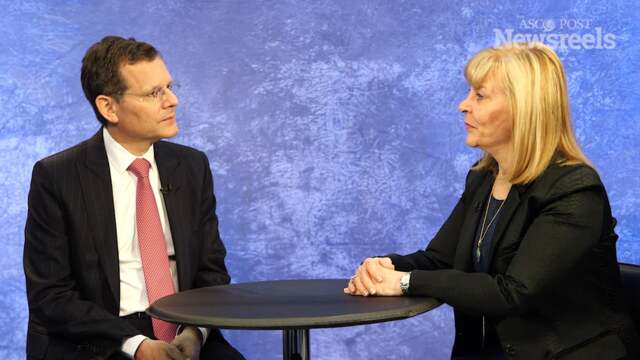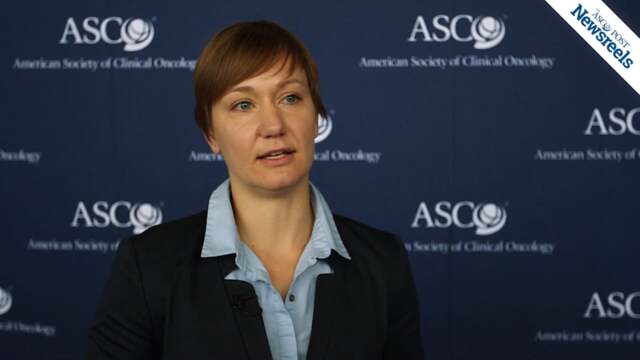Alice Tsang Shaw, MD, PhD, and Tony Mok, MD, on NSCLC: Results From the ALEX and ARCHER 1050 Trials
2017 ASCO Annual Meeting
Alice Tsang Shaw, MD, PhD, of Massachusetts General Hospital, and Tony Mok, MD, of the Chinese University of Hong Kong, discuss their two ASCO-featured abstracts on non–small cell lung cancer: alectinib vs crizotinib in treatment-naive advanced ALK+ disease, and dacomitinib vs gefitinib for first-line treatment of advanced EGFR+ disease. (Abstracts LBA9008 and LBA9007)
Solange Peters, MD, PhD, of the University of Lausanne, who has been a driving force in ESMO’s efforts to promote women in oncology, talks with Mary Gospodarowicz, MD, of Princess Margaret Hospital, a recipient of the 2017 Women Who Conquer Cancer Mentorship Award.
Nicholas D. James, MBBS, PhD, of Queen Elizabeth Hospital, discusses study findings on adding abiraterone for men with high-risk prostate cancer starting long-term androgen-deprivation therapy (Abstract LBA5003).
Greta Stifel recounts her story about a misdiagnosed tumor and urges physicians to raise awareness of neuroendocrine disease.
Julie Vose, MD, MBA, of the University of Nebraska Medical Center, and Clifford A. Hudis, MD, ASCO’s current CEO, discuss the state of cancer care and the challenges that lie ahead.
Erin Van Blarigan, ScD, of the University of California, San Francisco, discusses the value of lifestyle recommendations from the American Cancer Society for people who have been diagnosed with colon cancer, including longer disease-free and overall survival. (Abstract 10006)
